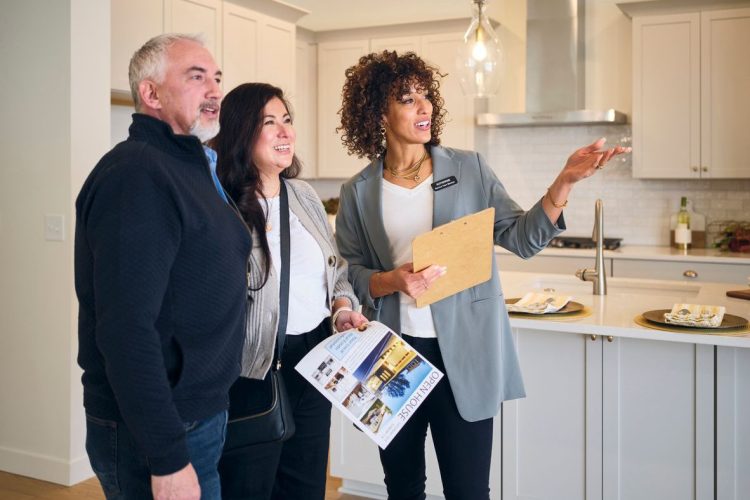Open house season is here. Attending open houses can give you a first-hand look at a potential home and neighborhood and help you gauge market value. When you’re touring open houses this spring and summer, knowing what to look for and ask about may give you an edge over the competition by being ready to offer faster. As you prepare to tour open houses, here are some questions to keep in mind and what you should keep to yourself.
Questions to Ask at an Open House
Why is the homeowner selling?
This question can reveal a lot. A job relocation or downsizing might suggest urgency, while a recent flood in the basement could mean something else entirely. Ask casually and be non-confrontational to show you’re seeking insight, not prying.
Are there any issues with the home?
While sellers are required to disclose specific issues, a casual conversation with a listing agent might offer additional context. You can ask about any past water damage and condition of the roof, walls, and floors, as well as any questions that arise as you tour the home.
What’s the seller’s ideal timeline?
Understanding the seller’s preferred move-out schedule can give you leverage when crafting an offer. If you’re flexible and can accommodate their ideal timeline, that might tip negotiations in your favor.
What ongoing maintenance is required?
A beautiful home filled with amenities often requires a significant amount of upkeep. Knowing how much maintenance the house requires, including in-ground sprinkler systems, home generators, landscaping, pool maintenance, alarm systems, and more, can help you reasonably assess the level of work and cost.
Have any offers been made?
Knowing if offers have already been extended on the home can help you better understand how competitive the market is and how serious the other buyers are. This can help you negotiate accordingly or give you insight if you want to walk away.
How long has the home been on the market, and has the pricing fluctuated?
While you can find these details online, asking the listing agent directly means you may gain some anecdotal feedback. This feedback gives insight into whether the listing price can be flexible and give you more negotiating power. It can also provide insight into if something is wrong with the property.
What is the feel of the neighborhood?
Open houses are usually scheduled at optimal hours. Asking about the neighborhood vibe, potential planned developments, and nearby amenities can give insight into the area.
Thoughts to Keep to Yourself
Negative opinions about the home
Sharing negative comments about the home’s appearance, smell, or feel is rude. It can also hurt your negotiating position if you later decide to make an offer. Keep your thoughts and feedback private until you’re back in your car or with your agent.
Your maximum budget
Even if you’re ready to extend an offer, never disclose how much you will spend. Sharing your budget range could impact whether your offer is accepted or the seller counters.
Personal circumstances or urgency
Avoid sharing any insight that signals that you’re in a hurry to move or have any urgency to make an offer. Sellers may consider this an opportunity to hold firm on price or terms.
Future renovation plans
Sharing any renovation visions with the selling agent can appear disrespectful. Save those conversations for your agent.
Other homes you’ve seen
The more information you share about your home search, the more likely you are to lose the negotiation power you would otherwise have.











